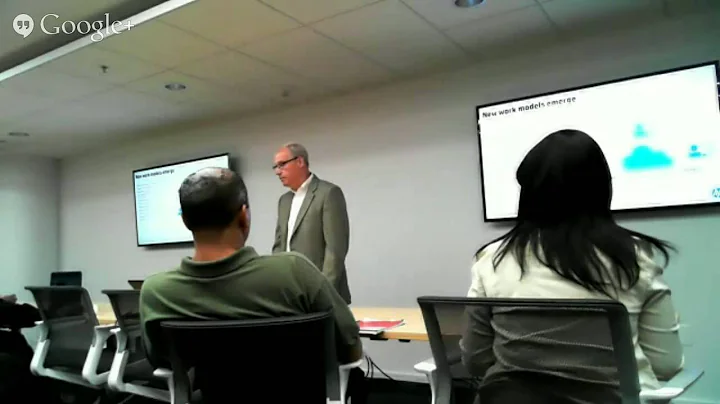
Electronic products have now become a part of our lives, and as "digital natives", our children's daily life, entertainment, and learning are closely related to electronic products. Instead of racking our brains to keep children away from electronic products, it is better to think about how to use them Good them. How to make electronic products a tool to promote children's development? How should we grasp the scale of using electronic products? How to guide children to use electronic products rationally and prevent excessive addiction?
The "Xinrui Cloud Classroom" sponsored by Beijing Women's Federation and hosted by Beijing Family Education Research Association, this issue specially invited Mr. Liu Xiaocen, associate professor, master's tutor, and Sino-Canadian scholar at the School of Preschool Education of Capital Normal University, to discuss Questions and answers about issues that parents are concerned about, and help parents guide their children to use electronic products rationally.
What impact do electronic products have on children’s development?
Liu Xiaocen: Electronic products have indeed provided a lot of convenience to our lives. Today’s children can hardly imagine how to live without electronic products.
For children, the more important role of electronic products is to help with learning and cognition. Electronic products have multiple channels of information input. For example, dynamic pictures can improve children's understanding and attention to stories, virtual reality can help children learn abstract knowledge and concepts, and somatosensory games can promote children's working memory and cognition. processing, cognitive flexibility, and volitional control, to name a few.

In addition to these positive effects, electronic products may also cause harm to children. For example, if children use electronic products for too long, they go to bed late or stay up late, which affects their learning and vision, or they become obese due to sitting still for a long time.
On the other hand, the information that children are exposed to on the Internet is mixed, such as blood, violence and other inappropriate content for children, which may encourage children to engage in violent behavior, reduce prosocial behavior, become alienated from others, and always like Look at your phone yourself.
How to control the use of electronic products for children of different ages?
Liu Xiaocen: Generally speaking, we try not to let children under 1 year old come into contact with any screen devices except video calls.
Children aged 2 to 5 years old can use electronic products under the supervision of an adult and should not use them for more than 1 hour a day. In addition, every 15 to 20 minutes of use, let the child rest for more than 10 minutes.
For preschool children, do not touch electronic devices during meals and within 1 hour before going to bed.
also has a tip for healthy eyesight, which is to keep children as far away from the screen as possible if they can see clearly. There should be at least an elbow's distance between the eyes and the screen.

For school-age children and teenagers, I recommend that the time spent using electronic devices should be limited to one and a half hours every working day, except for study time; the total time children spend playing electronic devices on weekends should not exceed 3 hours. Likewise, don’t let your children play with electronic devices at night before going to bed.
In addition to time, we also need to ensure that the content that children are exposed to is appropriate. A simple way is for parents to download the app themselves and try it to see if it is suitable.
In addition, before downloading the software, we can first check the application store introduction to see if there is any information about the applicable age group. If it is suitable for your child's age, then download it to your child.
How to supervise children's reasonable use of electronic devices?
Liu Xiaocen: Before giving your child a mobile phone, you must make an agreement with your child, such as I have the right to know the password of the mobile phone, such as turning on the software to monitor screen time, etc., so that parents can know how long their children have used the mobile phone and what software they have used. , to achieve the purpose of supervision. Another key content of the
agreement is that if it is found that the child uses the mobile phone for too long, delaying study and life, or does some bad things with the mobile phone, such as sending remarks that hurt others, searching for bad information, etc., Parents have the right to take their cell phones back.

How to guide children to use electronic products benignly?
Liu Xiaocen: First of all, we must understand and respect children, and formulate usage rules through communication and agreement with children. In terms of the content of
rules, we can refer to the "three W" principle.
What
What refers to the content of electronic products. Parents check the age appropriateness of the game or application, try it out, and then allow their children to use it if it is suitable.
When
When refers to the time of use of electronic products. Negotiate with your children how long they can use electronic devices every day.
Where
Where refers to the place where electronic products are used. I recommend allowing children to use electronics in common areas of the home where parental supervision can be facilitated. But teenagers may want to have their own space, so we should try to use software that monitors screen time to supervise it.
In addition, parents should accompany their children with warmth and do not treat electronic products as electronic nannies. Because the happiness that electronic products bring to children is actually very short-lived. Only by establishing a harmonious relationship between people can we resist the attraction of games and TV and provide children with a long-term sense of happiness. Therefore, it is recommended that parents play games with their children, or watch animations, movies, etc., and communicate with their children while watching.

Finally, parents should lead by example and eliminate technological interference, that is, do not let excessive use of mobile phones affect the relationship with their children. If parents only look at their mobile phones and do not respond to their children's needs, the children will become very manic and develop some behavioral problems.
How to cultivate children's media literacy?
Liu Xiaocen: Children need high-quality parent-child companionship to develop media literacy. In the process of contacting the Internet, children not only receive information, but also need to understand and access information. When their understanding is still insufficient, parents can help their children through some activities, such as choosing some controversial topics on the Internet and discussing them with their children.
On the other hand, children can also spread information, so we need to improve their judgment ability and not spread or believe rumors or attack others online. Some children whose psychological needs cannot be met in reality may vent online, so we need to help them resolve negative emotions in reality and cultivate their empathy and empathy abilities.
Is there any standard for judging whether a child is "addicted" to games?
Liu Xiaocen: You can see if your children have the following four behaviors.
First, when children cannot use electronic products, they feel very depressed, or are irritable or anxious.
Second, children would rather stare at electronic products than interact with others.
Third, children will stay up late and go to bed late because of using electronic products.
Fourth, children will lie when their parents ask about the time or content of the game. As long as one of the four
appears, it means that the child may be addicted to games.
What solutions do you have for children who are addicted to games?
Liu Xiaocen: First of all, the most important thing is the attitude of parents towards their children. Parents should not be too forceful to end their children's games, and should not just let them go.
I encourage parents to adopt a democratic family education method, so that children are more willing to accept their parents' opinions. And when a child's game times out, don't criticize him harshly, try to use praise to solve the problem.
For example, tell your children that although you exceeded the time limit today, you were punctual last time and I believe you will be able to do a good job tomorrow. The effect of doing this is completely different from directly criticizing the child.
Another point is that parents must first respond to their children's emotions. Once the children adjust their emotions, many problems will be solved. For example, when a child rejects his parents, you can ask him to talk about the game and praise him. The child may feel a sense of accomplishment and his mood will improve. He will naturally listen to you and put down the game.
What are some video games suitable for children?
Liu Xiaocen: There are several types of games suitable for children:
First, somatosensory games, which are games that combine some sports and electronic games;
Second, cooperative games, these games can allow parents or Other children participate together;
Third, educational games, such as Tetris, jigsaw puzzles, etc., are helpful for children to learn mathematics in the future.
also has some games that are scientifically proven to be beneficial to children's development, such as whack-a-mole, Fruit Ninja, Tom, cat parkour games, etc.
For teenagers, action games without bloody, violent or overly exposed scenes are also appropriate.
Is it difficult for children who don’t like to play games to make friends because they lack common topics?
Liu Xiaocen: It’s okay if you don’t like playing games. Children’s common topics are not just games, so this is not a decisive factor.
On the other hand, parents can actually find out what games other children play. If we try it out and find that this game is indeed more fun and helpful for children's development, then we can give it a try with our children. Of course, if he really doesn't want to Don’t force yourself to play.
In fact, when children get along with peers, they will have different peer relationships and peer status. For a child, what is more important than a common topic is whether he is willing to help others, his ability to empathize, regulate his emotions, and solve problems. Even appearance, hygiene conditions, and the teacher's usual attitude towards children will affect a child's popularity among peers.

Can I use an iPad as a reward for my children?
Liu Xiaocen: First of all, iPad is an experiential reward. This kind of reward is actually easier to stimulate children's internal motivation to do things than giving a material reward, such as pocket money.
But the iPad does not actually give children a concrete enough experience because it can be used to do many things, and it is not conducive to controlling children's screen time.
Again, we should seek the child's opinion, ask him what reward he wants, and make it clear why he is rewarded before rewarding him. At this time, don't emphasize his achievements, but emphasize how much the child invested in the process of doing things and whether his attitude is serious.
In fact, compared with iPad, it is better to give children some delayed gratification rewards. For example, if you perform well today, I will mark a small red flag for you. If you want a toy, if you accumulate ten small red flags, I can reward you with a toy.
source
Institute of Nurturing Science


















